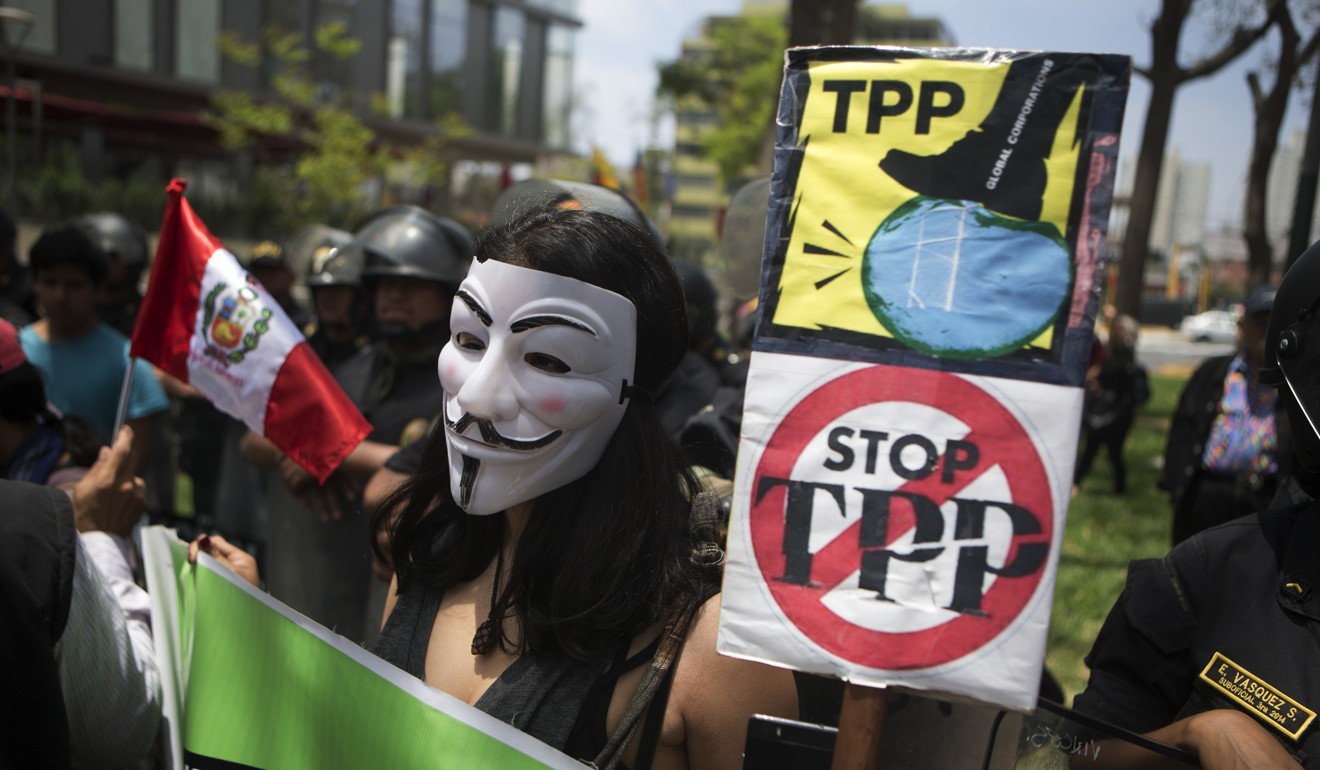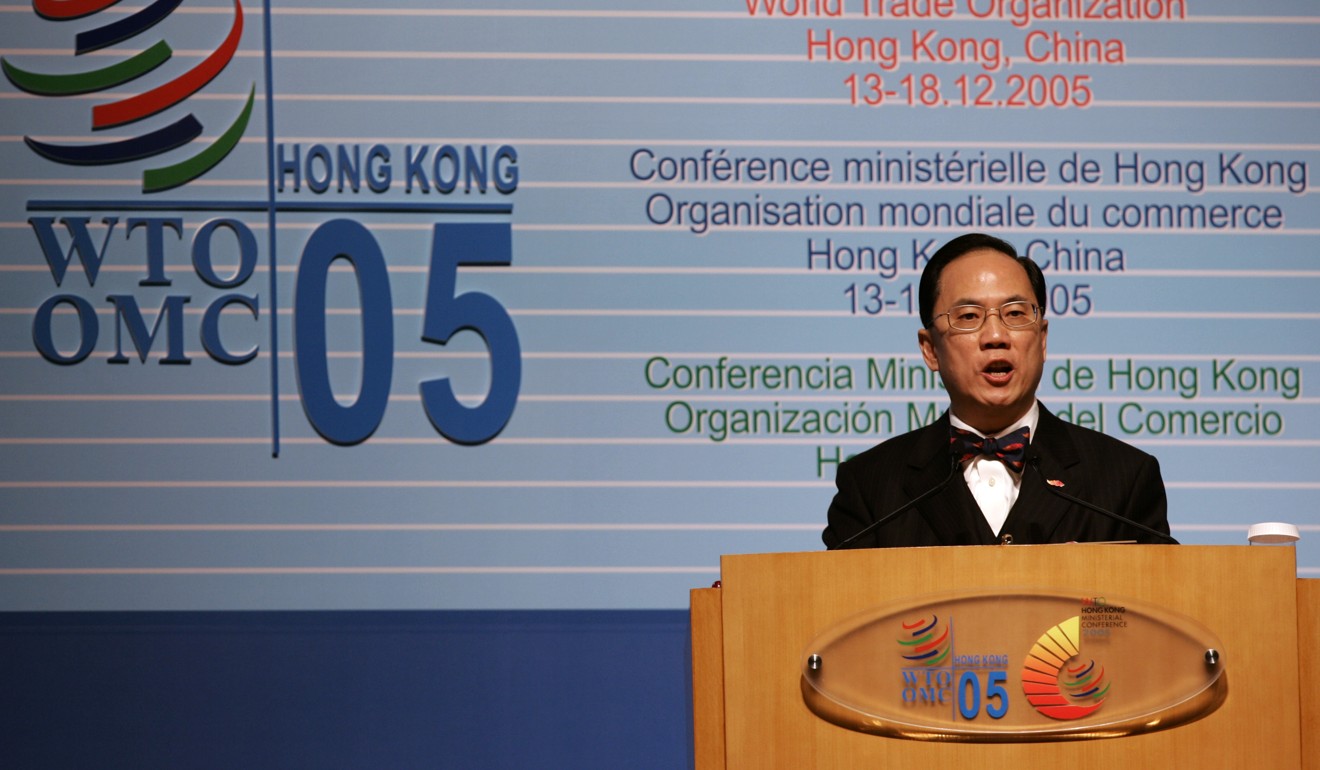
More multi-country trade deals and fewer bilaterals, please
For many companies in an economy like Hong Kong, bilateral agreements are simply ignored
Last week, as most Hong Kong people were focused on the ostentatious pomp of Chinese President Xi Jinping’s 20th anniversary visit, the inauguration of Carrie Lam Cheng Yuet-ngor’s new government, and an awful lot of fireworks and scarlet bunting, a tiny delegation from Australia quietly arrived to launch landmark discussions on a free-trade agreement.
Smarting from the recent assassination by US President Donald Trump of the 12-member Trans-Pacific Partnership, lead negotiator Elizabeth Ward and her team are clearly keen to keep the trade liberalising bicycle from falling over – and where easier than hyper-liberal Hong Kong?
But Hong Kong is a bit of a “newby” to free-trade agreements. For most of the past four decades, our administration has been among the world’s most passionate advocates for multilateralism, and so has focused all trade guns on the World Trade Organisation and the helplessly stalled Doha Round.
Where we have deviated from the reasonable but purist view that multilateralism is best, it has been for China (through the 2003 Closer Economic Partnership Arrangement), for the massive plurilateral Trade in Services Agreement still under negotiation in Geneva on the margins of the WTO, and for a belated back-door scramble into the China-Asean Free Trade Area.
This latter deal, which Hong Kong should really have been in from the start, is still not agreed, though our trade negotiators have been telling us a deal is imminent for about a year now. The latest target is late 2017, perhaps to coincide with the Association of Southeast Asian Nations’ 50th anniversary leaders’ meeting in the Philippines in November.
Our aloofness from free-trade agreements has not all been down to our own fussy puritanism over liberalising global trade. The reality is that no one has up to now been very interested in cutting deals with us. Since we are a small economy with a free port with almost no tariffs of any kind, for most economies there is not a lot to negotiate over. The rewards are much higher from forging bilateral trade agreements with big economies like China, the European Union, the United States or Japan, and where trade barriers are at present very high.

These together account for a rather underwhelming share of our overall trade and investment. Before you get excited about the EFTA, remember that it embraces the crumbs left over from the EU table – Iceland, Lichtenstein, Norway and Switzerland. These four, together with New Zealand and Chile, boast just 36 million people and an aggregate gross domestic product of just over US$1.4 trillion. Note Hong Kong’s own GDP amounts to US$2.5 trillion.
So when our Australian friends knocked on the door proposing a free-trade agreement, this was for Hong Kong a big deal – perhaps not as big as the undeniably significant China-Asean agreement, but not to be sniffed at. With GDP of US$1.4 trillion and a population of 24 million, it offers the prospect of almost doubling the scope of our free-trade agreements.
As Hong Kong’s eighth trading partner (their main export to us is gold) and with 600 Australian companies based in Hong Kong, there is serious business here. Splice in, too, the fact that 100,000 Australian nationals live in Hong Kong and a further 98,000 Hong Kong-born people live in Australia, and the people-movement elements of free-trade agreements could be of particular importance.
For most businesses... bilaterals are a mixed and dubious blessing that can generate more hassle than help.
Australia’s services exports to Hong Kong have grown fivefold in the past five years, driven by Hong Kong children going to Australian schools and universities, property investment and tourism.
Australia’s negotiators tell me they have already had one formal set of discussions in Canberra and aim to deliver an agreement “fairly promptly”. In trade negotiator-speak, that could be anything from three months to three years, but confidence at present seems quite high. Key areas for Australia will apparently be telecommunications, financial services, real estate, people movement and e-commerce.
While on balance Hong Kong should be pleased about Australia’s interests (especially if it paves the way to a double-taxation agreement), forgive me for being a bit of a party-pooper. Within the APEC Business Advisory Council, we from Hong Kong have just launched an initiative called “Please Prefer Plurilaterals”. The argument is simple: for most businesses – especially small companies or those with long manufacturing supply chains – bilaterals are a mixed and dubious blessing that can generate more hassle than help. They are better than no liberalisation, or downright protectionism, but they are a very poor second best to plurilateral deals that embrace large groups of significant economies, and to multilateral agreements that apply evenly to all economies worldwide.

These problems mean that for many companies in an economy like Hong Kong, bilateral agreements are simply ignored, which can make these tortuously protracted negotiations an embarrassing waste of officials’ time and taxpayers’ money.
So the message to Ward and Hong Kong’s own negotiators is that we wish them well, but really would prefer them where possible to spend their finite time and energy on multi-country deals rather than bilaterals, and on services and behind-the-border regulatory barriers rather than border tariffs. Why not, for example, work on making sure the Australia deal mirrors in every possible way our New Zealand free-trade agreement? Best of all just “Please Prefer Plurilaterals”.
David Dodwell researches and writes about global, regional and Hong Kong challenges from a Hong Kong point of view

